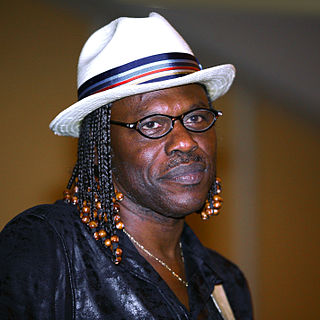A Quote by Anne Wojcicki
I first heard about 'genes' when I was six years old. At dinner one night, I heard my mom tell my sister, 'It's in your genes.'
Related Quotes
I learned that the first technology appeared in the form of stone tools, 2.6 million years ago. First entertainment comes evidence from flutes that are 35,000 years old. And evidence for first design comes 75,000 years old - beads. And you can do the same with your genes and track them back in time.
Yes, genes are important for understanding our behavior. Incredibly important - after all, they code for every protein pertinent to brain function, endocrinology, etc., etc. But the regulation of genes is often more interesting than the genes themselves, and it's the environment that regulates genes.
Cheetah genes cooperate with cheetah genes but not with camel genes, and vice versa. This is not because cheetah genes, even in the most poetic sense, see any virtue in the preservation of the cheetah species. They are not working to save the cheetah from extinction like some molecular World Wildlife Fund.
Complex organisms cannot be construed as the sum of their genes, nor do genes alone build particular items of anatomy or behavior by themselves. Most genes influence several aspects of anatomy and behavior as they operate through complex interactions with other genes and their products, and with environmental factors both within and outside the developing organism. We fall into a deep error, not just a harmful oversimplification, when we speak of genes "for" particular items of anatomy or behavior.
It's a very complex network of genes making products which go into the nucleus and turn on other genes. And, in fact, you find a continuing network of processes going on in a very complex way by which genes are subject to these continual adjustments, as you might say - the computer programmer deciding which genes ultimately will work.
Just think about it, be honest, how many groups have you heard of in the last five or six, seven, eight years that you never heard of playing live? You never heard of them making a record. You never heard of them in anybody else's band, and all of a sudden they're the biggest thing going. That to me, that's to me social media music. I'm not saying it's right or it's wrong but it is what it is.
Individuals are not stable things, they are fleeting. Chromosomes too are shuffled into oblivion, like hands of cards soon after they are dealt. But the cards themselves survive the shuffling. The cards are the genes. The genes are not destroyed by crossing-over, they merely change partners and march on. Of course they march on. That is their business. They are the replicators and we are their survival machines. When we have served our purpose we are cast aside. But genes are denizens of geological time: genes are forever.
When I was three and a half years old, I heard my big sister tell my mum that at school that day all the kids sat on the floor and watched 'The Neverending Story.' Having never heard of the movie, I concluded that this was what school must be: sitting cross legged on the floor listening to a never-ending story. Page after page.

































